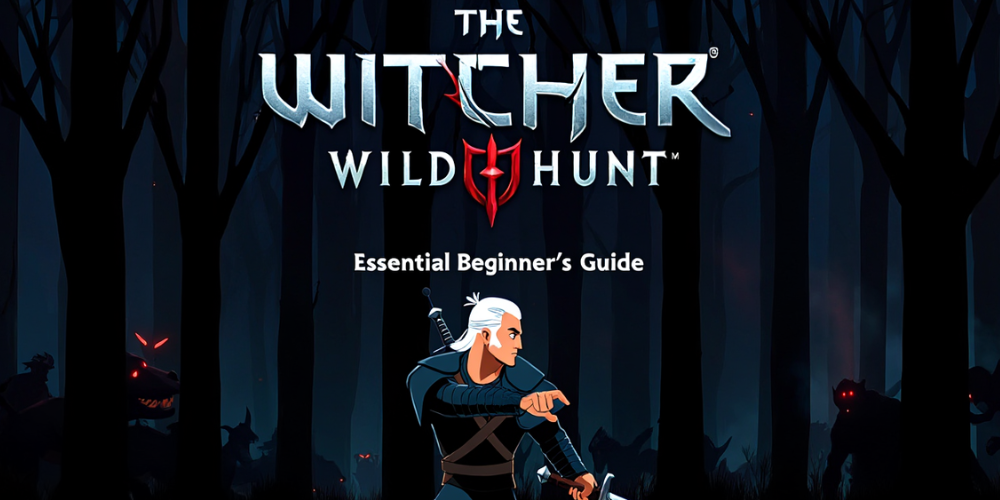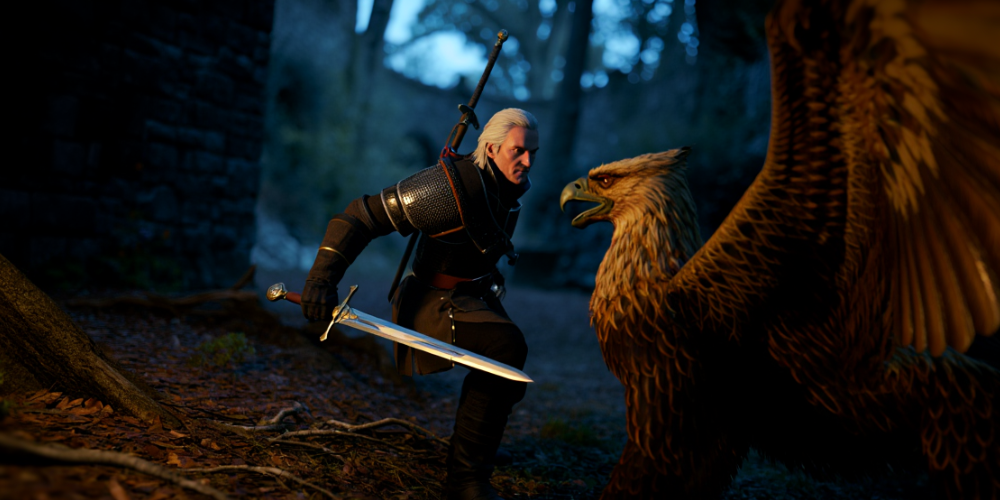Master The Witcher 3: Wild Hunt – Essential Beginner’s Guide
- 2025-07-09

Ready to lose yourself in one of gaming’s most acclaimed universes? The Witcher 3: Wild Hunt pulls you into the boots of Geralt of Rivia, a monster slayer for hire, in a world filled with deep stories, breathtaking landscapes, and difficult choices. Whether you’re a seasoned RPG fan or a curious newcomer, this masterpiece can seem huge and a bit overwhelming at first. But don’t worry—this guide is your portal to mastering the Continent, from basic survival tips to advanced monster hunting techniques. Let’s dive in and make your adventure unforgettable!
Core Gameplay and Interface
Understanding the World and Your Role
In The Witcher 3, you play as Geralt, a professional monster hunter with mutant abilities. The open world is massive, divided into several regions such as White Orchard, Velen, Novigrad, and Skellige. Each area has its own stories, secrets, and dangers. Freedom is key in this game—explore at your own pace, choose quests, or just enjoy the breathtaking scenery.
Controls and User Interface Basics
- Mini-map: Shows nearby objectives and points of interest.
- Quests Log: Helps track main and side quests. Use it to stay organized.
- Inventory: Manage weapons, armor, potions, and more here.
- Quick Slots: Assign potions, bombs, or food for easy use in combat.
Essential Tips for Beginners

1. Focus on Main and Secondary Quests
Start with main story missions to unlock new areas and mechanics. But don’t ignore side quests—they often provide unique stories, valuable gear, and extra EXP. Witcher Contracts (monster hunts) and Treasure Hunts are especially rewarding.
2. Understand Combat Mechanics
- Swordplay: Geralt uses a steel sword against humans and a silver sword against monsters. Learn when to dodge, parry, or roll—timing is crucial.
- Signs: Magic-like abilities for quick defense and attack. The five Signs:
- Aard (telekinetic blast)
- Igni (fire burst)
- Yrden (magic trap for ghosts/monsters)
- Quen (protective shield)
- Axii (mind control/confusion)
- Bombs & Potions: Always keep some crafted bombs and potions ready. Swallow (healing), Thunderbolt (attack boost), and Grapeshot (generic bomb) are especially helpful early game.
3. Leveling Up, Skills, and Mutagens
Every quest and enemy gives experience points (EXP). As you level up, choose skills in the Character menu:
- Combat: Improves sword abilities and damage.
- Signs: Boosts magic power and variety.
- Alchemy: More effective mixtures and potions.
- General: Passive boosts like extra health or stamina.
Don’t forget to slot mutagens for bonus stats—they drop from slain monsters.
4. Gear: Weapons, Armor, and Upgrades
Loot everything you find—crates, bodies, and monster remains often hold useful items. Gear quality matters:
- Common & Magic items are basic and easy to find.
- Relic & Witcher Gear are best. Witcher gear sets are upgradeable and offer bonuses for completing sets—hunt for blueprints!
- Repair and Upgrade: Use blacksmiths and armorers to repair and upgrade your items regularly.
5. Alchemy and Crafting
- Gather Herbs: Pick every plant and loot alchemy ingredients. You’ll need them for potions, bombs, and blade oils.
- Cocktails: Once you craft a potion, it will refill automatically (using alcohol) during meditation.
- Blade Oils: Prep the right oil for each monster type to boost damage.
Exploring the Continent
Fast Travel and Roach
The world is enormous! Use fast travel signposts to move between discovered locations. Or call your horse, Roach, to travel faster—whistle with the default call button, and give her a carrot or apple for a speed boost.
Breaking Points of Interest
- Question marks (?): Indicate hidden treasure, monster nests, or secret events on the map.
- Notice boards: These give side quests and reveal new points of interest.
- Villages and Towns: Each offers shops, inns, and NPCs with stories or contracts.
Finding and Solving Witcher Contracts
Monster hunting is Geralt’s job! Accept contracts from notice boards or villagers, investigate the crime scene with your Witcher Senses, prep the right potions and gear, then hunt down and defeat your monster. Always negotiate your fee for better rewards!
Advanced Tips and Tricks
Preparation Is Key
Before battles, always meditate to restore health and potions, review enemy weaknesses in the Bestiary, and apply the right oils. Adjust your strategy for each fight—don’t just rush in!
Managing Your Inventory
- Weight Limit: Don’t hoard everything. Sell junk and unwanted gear at merchants.
- Merge and Upgrade: Combine runes for weapon upgrades; keep only useful items.
Gwent: The Card Game
- Learn the Basics: Play merchant NPCs to win new cards and gold. You can collect several strong Gwent decks.
- Benefit: Winning tournaments can unlock rare cards and even storylines.
Choices Matter
Your dialogue choices have a real impact on the story and Geralt’s relationships. Sometimes, choices are not clearly good or bad—think before you answer!
Useful Early Game Strategies
1. Start in White Orchard
The starting zone, White Orchard, is your tutorial playground. Complete all quests here to learn the systems and gather solid starting gear.
2. Potion and Oil Priority
- Swallow: For healing.
- Thunderbolt: Attack boost.
- Beast Oil: For first monster contracts.
3. Money Management
Save gold for repairs, upgrades, and important recipes. Don’t rush to buy expensive armor early.
4. Upgrade Stamina and Quen
A good Quen shield and high stamina make you far more durable against early enemies.
5. Explore and Experiment
Try different Builds—experiment with combat, signs, or alchemy. Find a style that suits you best; there’s no one “right” way.

Ending: Your Witcher Legend Awaits
The Witcher 3: Wild Hunt gives you the freedom to tell your own story in a magical world packed with mysteries and challenges. With patience, curiosity, and a bit of careful preparation, you will not only survive but truly thrive as a Witcher. Remember: take your time, savor the journey, and don’t be afraid to make mistakes—they often lead to the best adventures. Good luck on the Path, White Wolf!
Quick Recap and Bonus Tips
- Explore thoroughly—hidden treasures and quests are everywhere.
- Always save before tough fights or big decisions.
- Pay attention to enemy weaknesses—research in the Bestiary!
- Upgrade Witcher gear whenever possible for lasting benefits.
- Balance main story with side quests for the best experience.
Now you’re ready to set out and make your mark on The Continent. Happy hunting!





